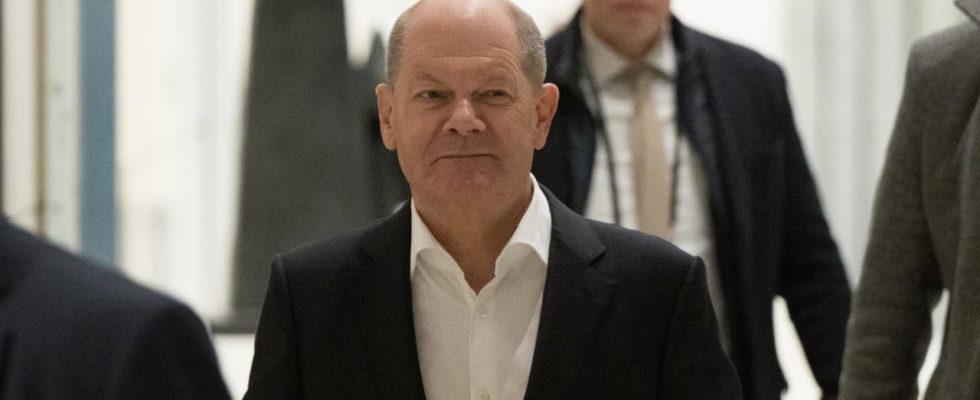Poor poll numbers, differences of opinion, farmers’ protests – Chancellor Scholz answered questions from the SPD parliamentary group about the difficult situation of the party and the traffic light government.
In a three-hour discussion, the SPD parliamentary group discussed the current situation at its closed meeting with Chancellor Olaf Scholz. The 207 MPs had previously agreed not to disclose the content. SPD leader Saskia Esken then simply said that the debate had been “very solidarity-based, very appropriate, very inspiring”.
Criticism from our own ranks
The SPD had previously openly criticized the state of the party and government. The Bochum MP Axel Schäfer, who has been a member of the Bundestag for more than 20 years, wrote in an incendiary letter to the parliamentary group, which was reported by several media outlets: “Today it is about the existence of the SPD as a member’s party and as a force capable of and willing to gain a majority in our country .” The party has “never faced such a situation”.
Juso chairman Philipp Türmer also sounded the alarm. “The situation of the SPD is currently like the general political situation in the country: massively hit by crises and deeply worrying,” he told the “Handelsblatt”. “Neither the traffic light nor the SPD as the leading party are currently associated with a positive vision for the country.”
The discussion with Scholz lasted twice as long as planned. The Chancellor himself didn’t comment on the content afterward, only saying to the waiting journalists as he left the meeting: “It’s nice that you’re here.”
Two years after their election victory in 2021 and at the beginning of a super election year with European elections and three state elections, Scholz and the SPD are stuck deep in the poll basement. According to the latest, the work of Prime Minister Scholz is… ARD GermanyTrend only 19 percent are satisfied. This is the lowest value for a chancellor since these surveys began in 1997.
Before the debate, the parliamentary group had adopted several position papers, including one calling for a reform of the debt brake – a step rejected by the coalition partner FDP. “The currently rigid rules pose a risk to the prosperity of current and future generations by not allowing enough scope for strong investments in the future,” the resolution states.
Another important topic was the fight against right-wing extremism. After the Potsdam meeting between right-wing extremist circles and AfD officials, parliamentary group leader Rolf Mützenich called on all Democrats to oppose this “right-wing swamp”. The meeting was aimed “at a revolution in Germany” and required a “response from democrats and decent people.”
Kai Clement, ARD Berlin, tagesschau, January 11, 2024 9:55 p.m

